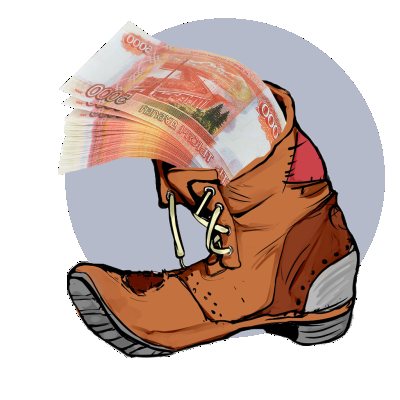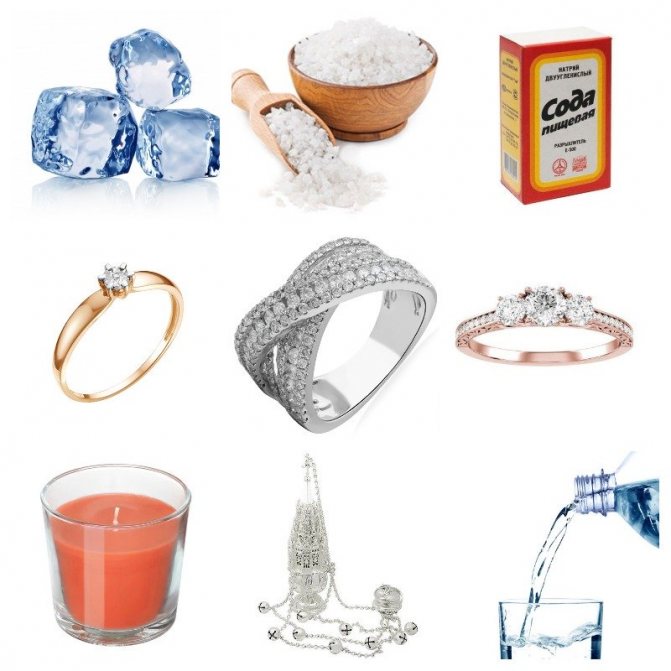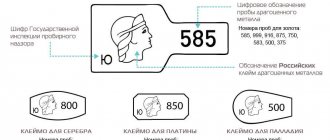- Signs and superstitions - what does a precious find portend?
- Lost property laws - how to distinguish between theft and discovery?
- Treasure hunting - adventurism or calculation?
Probably every person has discovered something forgotten or lost by someone. Most often this is an ordinary item - say, an umbrella or gloves, but sometimes finds are very valuable. Then the joy from an extraordinary event gives way to confusion - what to do with a piece of jewelry or other expensive product? Our article will come to the rescue, which describes all aspects of such situations.
Are you a treasure for me or not?
First of all, in case of discovery of any objects, it is necessary to determine whether what was found is a treasure (things that were deliberately hidden in the ground, in a building or structure and the owner of which can no longer be identified) or a find (a lost thing).
This point is fundamentally important, since the treasure and the find give rise to different legal consequences for the person who discovered them.
The find must always be returned to the owner or to law enforcement agencies to identify the lost person.
The treasure remains either with the owner of the property on whose territory it was found, or is divided between the finder of the treasure, the owner of the land or house, or is transferred to the state with the payment of a reward.
The fate of the treasure will depend on whether the items found are valuable to the state from the point of view of culture and history. If this is so, the law directly states: the treasure becomes the property of the state, which imposes on the person the obligation to hand over such treasure to the police. It does not matter who found such a valuable thing for the state: the owner of the territory or an outsider.
Living on interest: how much you need to save to forget about work forever
And here questions arise: who will determine the value of the treasure, how can the finder receive compensation?
After the treasure has been photographed, the inventory has been submitted to the police in the presence of several witnesses, an act of discovery of the treasure has been received, and an examination of the items is carried out. Specialists from local history museums are involved in examining the treasure for historical value.
12 kg gold bar
Finding a 12-kilogram gold bar in an open field and living in old age on one pension - this is a real story that happened to a former combine operator in the village of Velikoknyazevka. Nikolai Vasilenko handed over the found gold bar to the state in 1989, received the required twenty-five percent, but never became the richest collective farmer. Alfa Channel journalist and Moskovsky Komsomolets newspaper columnist Alexander Yaroshenko went to Velikoknyazevka to find out how a rural pensioner lives today and why the story with the gold bar ended so badly.
Everything here is about contrasts. A village with some non-Soviet name Velikoknyazevka, a street with the pretentious name Mir, unfinished Olympic symbols on the gate and the modest owner of the house - a former combine operator. He's a local legend. 17 years ago, Nikolai Vasilenko, working in a collective farm field, found a gold bar. 30 pounds of precious metal lay in the ground among freshly weeded soybeans. “I wiped it a little,” recalls Nikolai Vasilenko, “and put it in the top. I see there are clouds in the sky, but I still need to finish weeding the soybeans. I put the gold in the box with the keys and drove on. I’m skating there alone.”
A peasant who found not sweat and tears, but gold in a field - even now it’s more like a fairy tale, but in those days few people believed it. In the village they still say that Vasilenko’s neighbor gave that ingot, grandfather Grechka. But the chairman of the collective farm, Nikolai Gorbunov, does not believe in this gossip. He said, I saw this ingot, and the samples are there, and there is a mark from the harrow. This means that it was indeed found in the field.
Our collective farm named after Lenin was, the former chairman now says, a millionaire collective farm. But it is rare for there to be millionaires among collective farmers. For the gold that Vasilenko handed over to the state, the combine operator received, as expected, 25 percent, or 147 thousand in Soviet rubles. This is probably a whole bag of money, the local gossips said then. A documentary was then made about Vasilenko, and packs of letters began to be brought to him from the post office. Some asked for money for a TV, and some for a car, says Nikolai Vasilenko. A wealthy villager was even asked to become a sponsor of a rock band, they wrote that they would take them abroad. But Vasilenko did not give money to anyone. He only allocated 3 thousand rubles for the construction of a pioneer camp. He gave 15 thousand to the children - the peasant has five of them. I went to Leningrad. That's all. Perestroika came, which wiped out Vasilenko’s entire gold account. About 50 thousand rubles “burnt” on the book. “Now I would use this money differently,” sighs the pensioner.
Now all my grandfather’s wealth is a vegetable garden and an old Moskvich, and he bought it second-hand. I didn’t live a rich life - I didn’t have time to just live, calmly, says the failed millionaire, a legend of the village of Velikoknyazevka from Mira Street.
Source: https://www.amur.info/news/2006/01/25/12.html
Modified on 05/28/2014 23:16 by Ralf
Who gets what: valuable treasure

Next, the items classified as valuable are transferred to the Gokhran of Russia to determine their value and ensure safety, and the person who finds the treasure has the right to claim a reward. The remuneration must be paid by the Ministry of Finance within a month from the moment the value of the property is determined: in the amount of 50% of such value if the owner of the territory found it, and 25% each - to the owner and the person who searched for the treasure (by agreement between them, any percentage is possible).
But actually exercising your right to payment of remuneration is not so simple. In some cases, you have to defend your right to compensation in court.
The current legal regulation seems to favor the concealment of cultural property by those who find it.
- Firstly , confiscating the treasure from the discoverer, if the items are valuable to the state, is possible only by court decision.
- Secondly , who will be the person who reported the concealment of cultural property to government agencies? Frankly speaking, perhaps only museum workers and rarely police officers have a genuine interest in this.
- Thirdly , the law does not oblige, if a treasure is discovered, to apply for an examination to determine its value. The finder, it turns out, cannot and is not obliged to know what exactly he found.
And yet, do not forget: an attempt to sell an embezzled valuable item may result in its seizure by the police and deprivation of the right to compensation.
Qualification of theft
Regardless of the characteristics and cost of the jewelry, immediately after identifying the fact of theft, you must file a police report. If your items were stolen using force or threat, the case will be considered for other forms of theft (burglary or burglary). The statement must indicate the manner in which the jewelry was stolen:
- from a residential premises - indicate traces of penetration into an apartment or house; the nature of damage to doors, windows or locking devices; a list of stolen items and jewelry;
- from work offices, premises or storage facilities - in this case the illegal nature of the criminal’s entry must be confirmed (if the culprit was granted access to these premises legally, liability may also arise under other provisions of the Criminal Code of the Russian Federation);
- from vehicles - this method of theft is not an independent qualifying criterion under Art. 158 of the Criminal Code of the Russian Federation;
- from personal belongings or items that were directly with the victim.
If gold cost less than 2,000 rubles
If the gold cost less than 2,000 rubles, then such an act may be recognized not as theft, but as petty theft, and then it falls under the Code of Administrative Offenses of the Russian Federation, which does not entail a criminal record.
In this case, the decisive factor is whether related actions were committed that entail criminal liability regardless of the value of the gold. For a list of such actions, see this link.
Legislative regulation
Article 7.27 of the Code of Administrative Offenses of the Russian Federation, petty theft (version current for 2018)
- Petty theft of someone else's property, the value of which does not exceed one thousand rubles, by theft, fraud, misappropriation or embezzlement in the absence of signs of crimes provided for in parts two, three and four of Article 158, Article 158.1, parts two, three and four of Article 159, parts two , third and fourth article 159.1, parts two, third and fourth article 159.2, parts second, third and fourth article 159.3, parts second, third and fourth article 159.5, parts second, third and fourth article 159.6 and parts second and third article 160 criminal Code of the Russian Federation, except for the cases provided for in Article 14.15.3 of this Code - (as amended by Federal Law dated 02/05/2018 N 13-FZ)
punishment: entails the imposition of an administrative fine in the amount of up to five times the value of the stolen property, but not less than one thousand rubles, or administrative arrest for up to fifteen days, or compulsory labor for up to fifty hours.
- Petty theft of someone else's property worth more than one thousand rubles, but not more than two thousand five hundred rubles by theft, fraud, misappropriation or embezzlement in the absence of signs of crimes provided for in parts two, three and four of Article 158, Article 158.1, parts two, three and four of Article 159, parts two, three and four of Article 159.1, parts two, three and four of Article 159.2, parts two, three and four of Article 159.3, parts two, three and four of Article 159.5, parts two, three and four of Article 159.6 and parts two and third article 160 of the Criminal Code of the Russian Federation, with the exception of cases provided for in article 14.15.3 of this Code - (as amended by Federal Law dated 02/05/2018 N 13-FZ)
Also read: What liability is provided for the theft of a pet
? Punishment: entails the imposition of an administrative fine in the amount of up to five times the value of the stolen property, but not less than three thousand rubles, or administrative arrest for a period of ten to fifteen days, or compulsory labor for a term of up to one hundred. twenty hours.
Administrative liability for gold theft
For the theft of gold worth up to 1,000 rubles, the following liability is provided:
- a fine in the amount of up to five times the value of the stolen property, but not less than one thousand rubles;
- or administrative arrest for up to fifteen days;
- or compulsory work for up to fifty hours.
For the theft of gold worth from 1000 to 2000 rubles, the following liability is provided:
- a fine in the amount of up to five times the value of the stolen property, but not less than three thousand rubles;
- or administrative arrest for a period of ten to fifteen days;
- or compulsory work for a period of up to one hundred and twenty hours.
If gold cost more than 2000 rubles
If the stolen gold was worth more than 2,000 rubles, a much more serious liability arises - criminal.
Criminal liability for gold theft
For the theft of gold worth more than 2,000 rubles, the following liability is provided:
- a fine of up to eighty thousand rubles or in the amount of the wages or other income of the convicted person for a period of up to six months;
- compulsory work for a period of up to three hundred and sixty hours;
- or correctional labor for up to one year;
- or restriction of freedom for a term of up to two years;
- or forced labor for up to two years;
- or arrest for up to four months;
- or imprisonment for a term of up to two years.
Legislative regulation
- Theft, that is, the secret theft of someone else’s property, –
shall be punishable by a fine in the amount of up to eighty thousand rubles, or in the amount of the wages or other income of the convicted person for a period of up to six months, or by compulsory labor for a term of up to three hundred sixty hours, or by corrective labor for a term of up to one year, or by restriction of liberty for a term of up to two years. , or forced labor for a term of up to two years, or arrest for a term of up to four months, or imprisonment for a term of up to two years.
(as amended by Federal Law dated December 7, 2011 N 420-FZ)
- Theft committed:
a) by a group of persons by prior conspiracy;
b) with illegal entry into the premises or other storage;
c) causing significant damage to a citizen;
d) from clothes, bags or other hand luggage that were with the victim –
shall be punishable by a fine in the amount of up to two hundred thousand rubles, or in the amount of the wages or other income of the convicted person for a period of up to eighteen months, or by compulsory labor for a term of up to four hundred eighty hours, or by corrective labor for a term of up to two years, or by forced labor for a term of up to five years. with restriction of freedom for a term of up to one year or without it, or imprisonment for a term of up to five years with restriction of freedom for a term of up to one year or without it.
(as amended by Federal Law dated December 7, 2011 N 420-FZ)
- Theft committed:
a) with illegal entry into a home;
b) from an oil pipeline, oil product pipeline, gas pipeline;
c) on a large scale, –
shall be punishable by a fine in the amount of one hundred thousand to five hundred thousand rubles, or in the amount of the wages or other income of the convicted person for a period of one to three years, or by forced labor for a term of up to five years with or without restriction of freedom for a term of up to one and a half years, or imprisonment for a term of up to six years with a fine in the amount of up to eighty thousand rubles or in the amount of the wages or other income of the convicted person for a period of up to six months or without it and with restriction of freedom for a term of up to one and a half years or without it.
(as amended by Federal Laws dated December 27, 2009 N 377-FZ, dated March 7, 2011 N 26-FZ, dated December 7, 2011 N 420-FZ)
(Part three as amended by Federal Law dated December 30, 2006 N 283-FZ)
- Theft committed:
a) an organized group;
b) on an especially large scale, –
Also read: Theft of money from a card: what is it, why the number of thefts is growing
shall be punishable by imprisonment for a term of up to ten years with or without a fine in the amount of up to one million rubles or in the amount of the wages or other income of the convicted person for a period of up to five years and with or without restriction of freedom for a term of up to two years.
(as amended by Federal Laws dated December 27, 2009 N 377-FZ, dated March 7, 2011 N 26-FZ)
notes. 1. Theft in the Articles of this Code means the illegal gratuitous seizure and (or) conversion of someone else’s property for the benefit of the perpetrator or other persons, committed for mercenary purposes, causing damage to the owner or other holder of this property.
- Significant damage to a citizen in the Articles of this chapter, with the exception of part five of Article 159, is determined taking into account his property status, but cannot be less than five thousand rubles.
(Clause 2 as amended by Federal Law dated 07/03/2016 N 323-FZ)
- In the Articles of this chapter, premises are understood as buildings and structures, regardless of the form of ownership, intended for the temporary residence of people or the placement of material assets for production or other official purposes.
In the Articles of this chapter, storage means utility premises separated from residential buildings, areas of territory, pipelines, and other structures, regardless of the form of ownership, that are intended for permanent or temporary storage of material assets.
(as amended by Federal Law dated December 30, 2006 N 283-FZ)
- Large size in the Articles of this chapter, with the exception of parts six and seven of Article 159, Articles 159.1, 159.3, 159.5 and 159.6, is recognized as the value of property exceeding two hundred and fifty thousand rubles, and especially large - one million rubles.
Criminal liability for theft regardless of the value of gold
if theft is committed:
- by a group of persons by prior conspiracy;
- with illegal entry into the premises or other storage;
- causing significant damage to a citizen;
- from clothes, bags or other hand luggage that were with the victim;
- with illegal entry into a home;
- from an oil pipeline, oil product pipeline, gas pipeline;
- on a large scale (250,000 rubles);
- organized group;
- in an especially large amount (1,000,000 rubles),
then criminal liability arises for it, regardless of the amount of damage.
Who gets what: worthless treasure

What if the treasure is truly unremarkable from a historical and cultural point of view? The finder has the right to take it entirely, subject to certain rules:
- the treasure goes in full to the owner of the land plot and/or building (premises), if the owner found the treasure on his own;
- the treasure is divided in half between the treasure hunter and the owner of the land and/or building (a different ratio can be established by a notarial agreement);
- the treasure comes into the possession of the owner of the land and/or building (premises) in the event of unauthorized searches in this territory by another person.
In all of the above cases, personal income tax is subject to payment. No tax is charged on the amount of remuneration from the state for a valuable treasure.
Noble old age: how to save enough for retirement to buy sangria
By the way, about spouses. An unvaluable treasure found by a husband or wife will not be considered jointly acquired property - due to the gratuitous nature of its acquisition. Remuneration for the transfer of a valuable treasure to the state, on the contrary, should be included in the joint property of the spouses.

Did you like the article? Rate it and tell your friends
What to do with found jewelry?
If you find jewelry and are not too inclined to trust signs, then you can pick up the jewelry and think about what to do with it next. There are many options, but the most obvious are:
- wear jewelry;
- take it to a pawnshop;
- melt down someone else's jewelry, thus destroying energy connections;
- give the decoration to the church;
- sell and distribute the money received as alms.
Any of the above actions is your right. But if you still decide to keep the jewelry and wear it, then it would be useful to think about what rules exist for handling the found ring or any other jewelry.
Actually, there is only one rule: your task is to make sure that the product you find is safe for you. But this can be achieved in several ways.

- Soak in salt water (for about a day), and then rinse with holy water. If desired, you can burn the gold with fire, thereby purifying it.
- Rinse under regular running water for quite a long time, while saying the words of prayer (for example, you can say “Our Father” several times).
- Place the decoration in a bag and place it in the freezer for a day.
- You can clean the jewelry this way: put it in water for three days, then in fine salt for the same time, and then for the same three days just put it on the windowsill under the sun’s rays.
- It is good to use candle fire for cleaning. You can light a candle during the day, put an object next to it and ask God, the cosmos or nature to cleanse the jewelry so that you can wear it without fear.
- Take the product to the church and consecrate it.
- If the product is inlaid with precious stones, then energy therapists advise using different cleaning methods for minerals of different colors:
- It is recommended to clean white, black and gray stones within a month by simply placing them on the windowsill (alternating lunar and solar energy will do the trick);
- stones close to fiery shades (yellow, red, brown) can be cleaned using a flame: it is enough to hold them over a candle flame for 3-5 minutes twice a day for three days;
- stones of cold shades (blue, pink, sea green, dark blue) are cleaned with water: it is believed that every morning for a week they should be thrown into a container with ice water (thrown into cold water, the next day you pour it out and pour in a new portion - and so on seven days).
It is interesting that in general it is recommended to undergo cleaning procedures (albeit not so deep, of course) for any jewelry that comes into your hands. If you bought it in a store, then you don’t know who tried it on before you, what the master thought when he made it, etc. For a new product, it’s enough to carry out the simplest possible ritual: just hold it for a few minutes under a cool running stream water. And even if the decoration was given as a gift, you should not neglect cleaning either: you don’t know if this gift was not made from a pure heart. So you can wear jewelry without fear only after a basic “cleansing” ritual.
A found piece of jewelry, someone else's treasure, is always a challenge and a question for us. Of course, everyone decides for themselves whether to pick it up or not, and if they pick it up, what to do with it. But sometimes neither signs nor superstitions work. But the only thing that will never fail is your heart, your intuition. If you find something that you feel comfortable and at ease with, it means that the find was unlikely to be accidental, and the jewelry is unlikely to harm you. At the same time, if you feel anxiety, danger, or melancholy next to the jewelry, run away from such a find. Life can always give us an unpleasant surprise, we know that. So you shouldn’t give her options yourself. Or maybe your nobility, if you found a jewel and did not appropriate it for yourself, will be appreciated by the same life.











